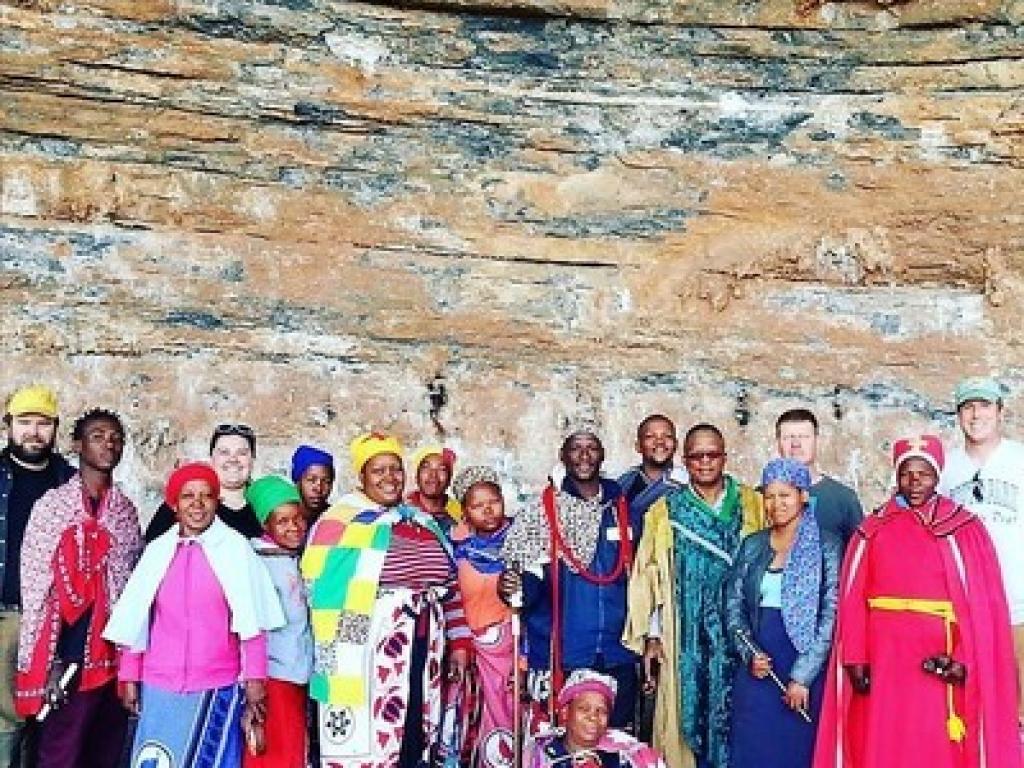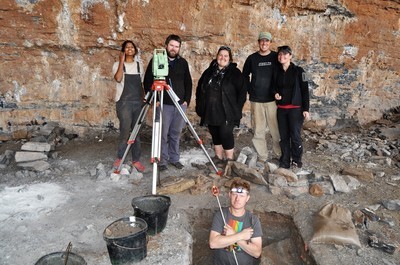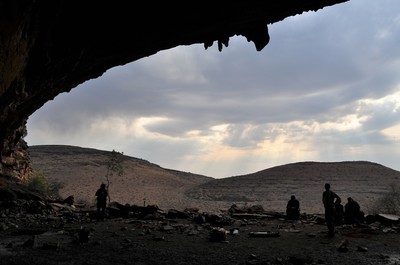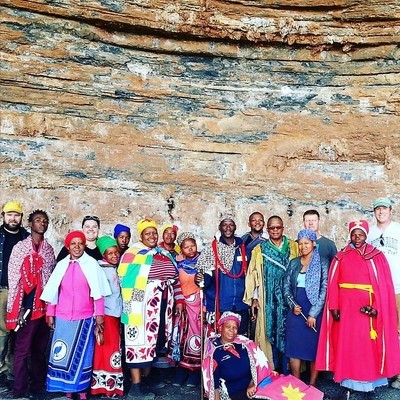How did climate change in the past impact early humans?


Team photo from excavations at Gamohana Hill
The North of Kuruman Project, led by Dr Jayne Wilkins, Lecturer in the Department of Archaeology, and Dr Benjamin Schoville, Centre of Excellence in Palaeosciences Postdoctoral Fellow, is an interdisciplinary investigation of early human adaption in the Kalahari Basin designed to address those questions. This new project will help identify the important drivers behind the origins of Homo sapiens by focusing on a region of South Africa that has received little archaeological attention to date.

The North of Kuruman project was recently awarded funding from the National Geographic Society-Waitt Foundation, which targets social sciences projects at the cutting edge of technology and exploratory research. The project is also supported by funding from UCT and DST-NRF COE in Palaeosciences. Last year the group discovered new Middle Stone Age deposits at an archaeological site called Gamohana Hill near Kuruman in the Northern Cape and they are going back in July this year for additional excavation and survey. Dr Wilkins will take 10 of her students to the site to learn new field skills. Three Master’s students, Simangaliso Makalima, Khumo Matlhoko and Alyssa Eltzholtz are doing their theses on this project.

Traditional healers from local communities regularly visit Gamohana Hill
